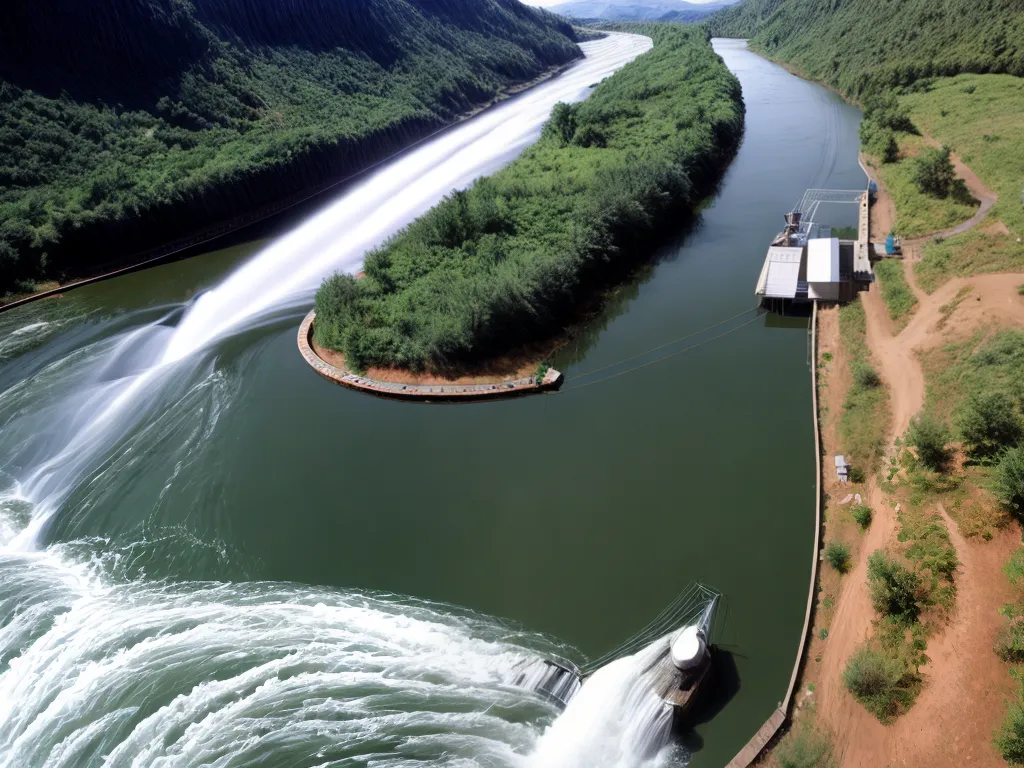
How to Overcome the Challenges of Small-Scale Hydropower
Small-scale hydropower projects can provide clean, renewable energy to local communities. However, developing these projects comes with unique challenges that must be addressed. In this article, I will share how to overcome the main challenges of small-scale hydropower based on my experience working in this field.
Selecting the Right Site
Choosing an appropriate site is crucial for a successful small-scale hydropower project. Ideal sites have the following characteristics:
-
Sufficient water flow - The water source must provide adequate flow year-round to power the turbines. Conduct flow rate assessments during both high and low seasons.
-
Hydrology - The area's rainfall patterns, geography, and other hydrologic factors must support a consistent water supply.
-
Head height - Higher vertical drop (head) yields greater power output. Look for natural drops in the terrain like waterfalls or steep riverbeds.
-
Accessibility - The site needs to be reachable for transporting materials and maintenance. Remote locations add costs.
-
Environmental impacts - Avoid sensitive ecosystems and critical habitat. Conduct environmental assessments.
-
Existing infrastructure - Proximity to electrical grids and roads reduces development costs.
Thorough site analysis before choosing a location can prevent costly mistakes later on. I hire a site survey team early in the process to identify the most viable options.
Obtaining Regulatory Approvals
Small-scale hydropower projects require various regulatory permits and approvals. Navigating these can be tricky. Here are some tips:
-
Consult regulations early - Learn what environmental, construction, grid connection and other permits apply. Regulations vary by location.
-
Engage stakeholders - Open communication with affected landowners, indigenous groups, agencies and non-profits smooths the process.
-
Hire experts - Permitting consultants can advise on requirements and submission timelines. Environmental lawyers help ensure compliance.
-
Allow sufficient time - The approval process often takes over a year. Account for possible delays in your project timeline.
-
Follow protocols - Strictly adhere to all regulatory guidelines and monitoring requirements. Non-compliance endangers the entire project.
Allocating adequate time and resources to secure permits is essential to avoid roadblocks later. I build in contingencies in case approvals take longer than expected.
Managing Construction Logistics
Constructing hydropower facilities in remote locales poses logistical hurdles. Careful planning of the build process is imperative. Here are some logistical best practices:
-
Upgrade site access - Existing roads may need improvements to allow heavy equipment delivery.
-
Stage materials - Stockpile construction materials and prefabricated components on-site before work begins.
-
Secure local labor - Hiring nearby workers reduces travel time and housing needs.
-
Provide on-site housing - For non-local workers, arrange temporary lodging near the site.
-
Coordinate schedules - Ensure sequenced deliveries of materials, equipment and labor.
-
Plan for weather - Schedule around seasonal road closures or work stoppages from weather.
-
Allow long lead times - Factor in extended timelines for transporting specialized equipment and materials to remote sites.
-
Consider modular designs - Prefabricated, modular plant components minimize on-site construction.
Careful logistics planning allows my projects to overcome remote location challenges. I build in contingency time for potential delays due to weather or other variables.
Securing Sufficient Funding
Obtaining funding for small-scale hydropower development poses difficulties due to the unique financial profile of these projects. Some effective strategies include:
-
Seeking public grants - Government clean energy grant programs can provide startup capital and feasibility study funding.
-
Working with non-profits - Partnering with environmental groups or economic development agencies opens up funding options.
-
Exploring innovative models - Community-funding models like cooperatives allow cost-sharing across multiple stakeholders.
-
Offering revenue-sharing - Agreements to share future power sales revenue provide investor incentive.
-
Maximizing incentives - Take advantage of all available tax credits, feed-in tariffs, and renewable energy incentives.
-
Demonstrating project viability - Detailed feasibility studies and energy yield projections boost investor confidence.
-
Securing agreements - Power purchase agreements prove long-term revenue potential.
Persistence and creativity in securing financing has enabled me to fund even capital-intensive small hydro projects. I leverage a diverse mix of funding sources to share risk across multiple partners.
Ensuring Long-Term Sustainability
Small-scale hydropower must remain functional for decades to be viable. Several factors are vital for long-term sustainability:
-
Robust design - Invest in high-quality components designed for longevity and low maintenance.
-
Skilled operators - Hire and train qualified technicians to carry out proper operations and maintenance.
-
Spare parts inventory - Keep spare parts on hand to minimize downtime for repairs.
-
Maintenance funds - Finance ongoing maintenance costs via long-term power purchase agreements.
-
Ecosystem monitoring - Continue assessing environmental impacts during operation. Adjust practices as needed.
-
Community participation - Keep local stakeholders engaged through ownership models and community funds.
-
Upgrading - Periodically upgrade older equipment and incorporate efficiency improvements.
By focusing on robust designs, skilled personnel, and ecosystem monitoring, I ensure my projects operate sustainably for generations. Ongoing community participation also provides accountability.
Conclusion
Developing small-scale hydropower in remote locations poses genuine challenges but can be extremely rewarding. Success requires thorough site analysis, regulatory expertise, logistics planning, innovative financing, and a focus on long-term sustainability. With diligence and passion, even small organizations can harness the power of flowing water to provide renewable energy access to local communities. The benefits for both people and planet make the effort worthwhile.